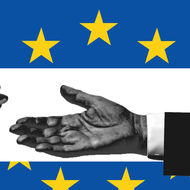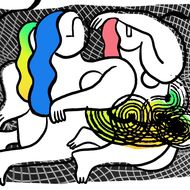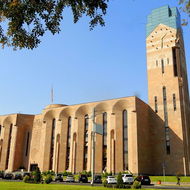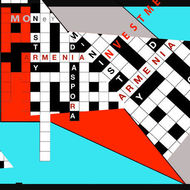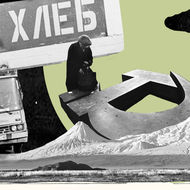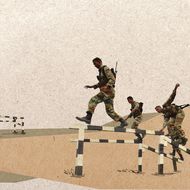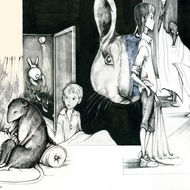Search articles
Search results for
The Eastern Partnership: From Security to Resilience
By Anna Barseghyan
The EU’s policy toward its neighbors has had several transformations, including a shift from a “one size fits all” approach to a “pick and choose” one. Anna Barseghyan explains.
The Economic Significance of the Minimum Monthly Wage
By Ani Avetisyan
Armenia’s minimum wage is set to increase in 2020. When setting the minimum wage, governments need to take a balanced and evidence-based approach that considers the needs of workers and their families on the one hand and economic factors on the other.
The EDM Kitchen։ Electronic Dance Music in the Context of Gender
By Eva Khachatryan
Electronic dance music, as a relatively new cultural phenomenon, could have been occupied by women, but even here, the presence of men is predominant and women have to fight for fair representation.
The Election No One is Talking About
Yerevan municipal elections are scheduled for May 14. Approximately 35 percent of the country's electorate reside in the capital city, however, no one is talking about the importance and significance of these elections.
The Elimination of the Diaspora Ministry has Nothing to do With the Diaspora
By Nerses Kopalyan
When the Ministry of Diaspora was eliminated, many believed it went against the interests of the Armenian Diaspora. Nerses Kopalyan provides an alternative approach that alleviates bureaucratic bloating, enhances legislative efficiency offering the Diaspora a healthy dosage of political capital and a culture of reciprocity.
The Endless Geopolitical Struggle
By Mikael Yalanuzyan
Western attempts to infiltrate into the sphere of Russian influence have meant to weaken Russia and maintain constant tension. Could this result in larger clashes with more unpredictable consequences, this time between large geopolitical players?
The Escalating Tensions Between Iran and Azerbaijan
By Hranoush Dermoyan
Since the end of the 2020 Artsakh War, tensions between the Islamic Republic of Iran and Azerbaijan have been escalating. Although an outright military confrontation seems unlikely, it would have devastating consequences for the region.
The Eternal Magic of Mariam Petrosyan’s Gray House
By Lilit Margaryan
Translated into several languages, Mariam Petrosyan’s epic novel “The Gray House” has enchanted readers across the world. In this first book review, Lilit Margaryan speaks with the elusive Petrosyan about her life and the life of a novel that took 18 years to write.
The Eternal Minority?
By Paul Mirabile
Armenians scattered globally share one very prominent reality: they represent a minority status, writes Paul Mirabile arguing that the Armenians' numerical “weakness” has forged a most extraordinary but, at the same time, a most tragic reality.
The EU’s “Building Back Better” Policy Gaining Momentum in Armenia
By Anna Barseghyan
After remaining on the sidelines of the 2020 Artsakh War, the EU seems to be back with a renewed and impressive strategy for Armenia. With this new agenda, is the EU trying to counterbalance the influence of other regional players?


